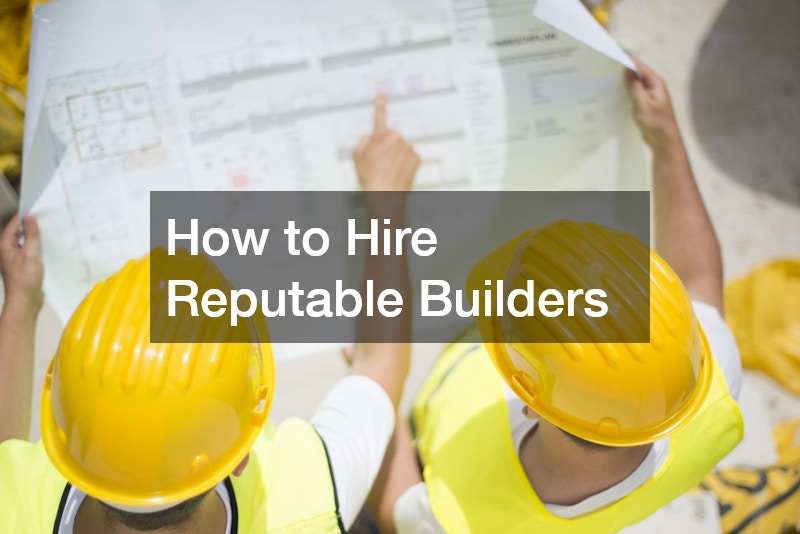
Finding and hiring reputable builders can be a daunting task, but it is crucial for the success of any building project. This guide will walk you through the key considerations and steps to ensure you choose the right professionals for your needs. By understanding what to look for and how to verify reputations, you are better positioned to make informed decisions for your construction needs.
What should I look for when hiring a builder?
Check Credentials and Experience
Ensuring a builder has valid credentials is the foundation of any hiring decision. A builder with the necessary licenses and certifications demonstrates compliance with local regulations and basic standards in construction.
Checking experience along with credentials is equally vital, as a solid track record can indicate reliability and expertise in handling various projects.
Review their past projects to gain insights into their craftsmanship and ability to handle similar project scopes. Reliable builders consistently deliver quality results and adapt to meet unique project requirements. An experienced builder is less likely to encounter unforeseen challenges, minimizing potential setbacks in your building project.
Industry experience allows a builder to establish a reputation for quality work and professionalism. Over time, their reputation becomes an indicator of their ability to deliver on their promises. Choose builders with extensive experience in projects similar to yours to ensure they are well-versed in relevant building practices.
Verify References and Reviews
Reaching out to past clients can offer invaluable insights into the builder’s reliability and quality of work. Clients who have had positive experiences are often eager to share their stories, which can help you assess the builder’s commitment to customer satisfaction. Online reviews also provide a wealth of information but should be taken with a grain of caution, as experiences can be subjective.
Look for patterns within reviews to determine consistent strengths or areas of concern. Builders with numerous positive reviews often indicate a strong history of satisfying clients. However, beware of any recurring negative comments as they might suggest persistent issues in the builder’s practices or results.
Speaking directly with references can clarify specific aspects, such as professionalism, timeliness, and communication skills. Previous clients can provide firsthand accounts of their working relationship with the builder. Their honest feedback helps form a well-rounded understanding of what to expect from your potential hire.
Assess Communication and Rapport
Open and clear communication is essential for the smooth progression of any construction project. A builder who establishes strong communication channels enables effective collaboration and minimizes misunderstandings. From the initial consultation to project completion, consistent communication signals the builder’s commitment to transparency and client engagement.
Assess whether you feel comfortable expressing your ideas and concerns with the builder. A good rapport facilitates a cooperative atmosphere, which can be critical for addressing issues efficiently. Builders who exhibit active listening and responsive communication provide reassurance and build trust throughout the project duration.
The working relationship between you and your builder hinges on mutual understanding and respect. Compatibility ensures a more pleasant experience and successful project outcomes. Therefore, prioritizing communication and rapport when interviewing potential builders is an investment in the project’s future.
How do I ensure a builder is reputable and trustworthy?
Conduct Background Checks
Conducting background checks on potential builders can safeguard you against future complications. Scrutinizing legal histories can unveil past disputes or compliance issues that might affect your decision. A reliable builder will possess a clear and professional record, reflecting their ability to maintain high standards over time.
Inquire about any litigation or legal issues they may have been involved in. A builder with a clean record is likely to possess the integrity and professionalism you seek. This step in your due diligence helps identify any red flags that might indicate potential risks in hiring the builder.
Background checks also include verifying business credentials to ensure legitimacy. Builders committed to ethical practices tend to have a history of transparent operations. This insight reinforces confidence in their capabilities and ethical standards.
Request Detailed Contracts
A detailed contract is essential for establishing clear expectations and protecting both parties’ interests. Reputable builders should willingly provide comprehensive contracts that outline project specifications, costs, and timelines. This level of detail reduces the risk of misunderstandings and confirms the builder’s dedication to professionalism.
Studying the contract allows you to clarify roles, responsibilities, and deliverables. Thorough documentation of these aspects helps address potential issues and sets a framework for accountability. Skeptical builders reluctant to provide such documentation might indicate an issue with transparency, which is a potential red flag.
A comprehensive contract serves as a legally binding document that guides the project from start to finish. Contracts should be reviewed in detail, and any ambiguities addressed before signing. Protecting your interests with a well-crafted contract ensures that the builder’s commitments are formalized and can be referred to throughout the project.
Look for Industry Affiliations
Builders associated with respected industry organizations tend to adhere to established standards and guidelines. Such affiliations often require meeting strict ethical and professional criteria, supporting their reputation as reliable professionals. This involvement reflects the builder’s dedication to ongoing education and development within the industry.
Membership in industry groups demonstrates a commitment to quality and accountability. Builders actively participating in these organizations may be more informed about industry trends and best practices. This dedication to their profession elevates their reliability and offers reassurance of high standards.
Industry affiliations also provide a network of professionals committed to upholding integrity in construction practices. Builders endorsed by their peers are less likely to produce subpar outcomes and more likely to maintain trustworthiness. Therefore, including this factor in your evaluation process can significantly aid in choosing a reputable builder.
.


